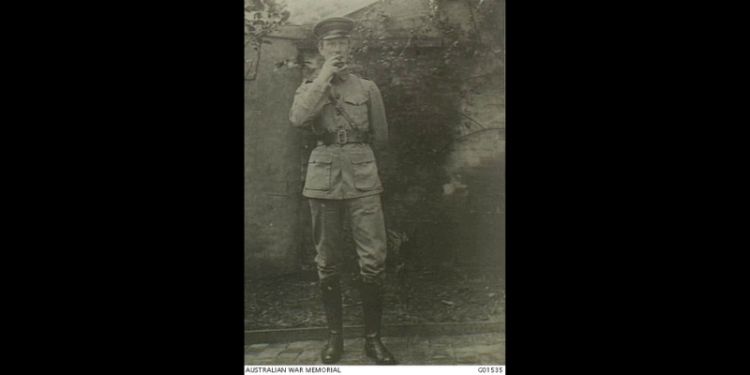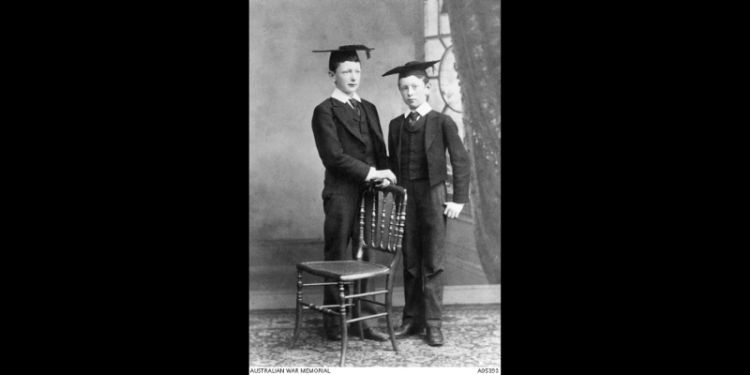Research project
Epistolary Lives and the Making and Re-Making of First World War Archives
- Start date: 1 June 2022
- End date: 31 May 2024
- Funder: British Academy
- Primary investigator: Dr Alexia Moncrieff
- External co-investigators: Dr Bart Ziino (Deakin University)
Description
A hypochondriachal and egotistical effusion
Dr John Willoughby Butler Bean, known as Jack, was an Australian doctor who served in the Australian Army Medical Corps in the First World War (1914-1919). During this period, he wrote over two hundred letters that travelled thousands of miles back to his parents in Tasmania.
In later life, Jack re-discovered his letters and decided to donate them to the Australian War Memorial. In the process, he re-read each one, adding content keywords to create his own index of topics and metadata for the letters. He also added his own reflections on the contents of some of the letters, some forty years after originally penning them.
This extraordinary archive offers intimate insight into Jack’s experiences as a Medical Officer, his confrontation with wounding and rehabilitation, his struggles with his professional identity and ethics in the face of modern war, and the questioning of his religious faith. This rich collection of letters—unique in Jack’s re-reading and annotating over an extended time—has the potential to challenge current ways of thinking about the resilience of service personnel in war, familial connection and brotherhood, and the role of the individual in shaping archives and histories of war.
In this project, Dr Alexia Moncrieff and Dr Bart Ziino examine not only Jack’s letters, but also those of his two brothers and parents, which have also survived. Jack’s elder brother, Charles Bean, was Australia’s official war correspondent: official historian of the war, founder of the Australian War Memorial, and a major shaper of the dominant narrative of Australian masculinity, the Anzac legend. A third brother, Montague Bean, did not enlist in the military and remained in Australia working as a civilian engineer. Analysing this family’s correspondence offers direct entry into long-running debates over the making of a particular narrative of Australians at war.
The wartime experiences of Jack and Montague stand at odds with the characteristics of Australian masculinity as conceptualised by their brother Charles. Given the emphasis on duty, service and sacrifice in the Anzac legend, examining the letters between Jack, Charles and Montague offers a rare avenue into understanding how substantial differences in male wartime experience might be accommodated in private and public. By examining the broader Bean family correspondence and analysing how this family communicated during the war, this project seeks to understand how individuals talked about, revisited and revised their wartime lives with their loved ones across significant gaps in distance, knowledge and experience.
Through its investigation of the functions of letter-writing in wartime – and the ongoing life of such testaments – this project contributes to an active debate over how participants in the First World War negotiated their often very different and difficult experiences over an extended period of time. It also contributes to a growing effort to excavate archival histories, in order to expose the active making and remaking of the record of the past over time, and how that process shapes and directs the kinds of histories we can produce in the present.
Read more
Alexia Moncrieff and Bart Ziino, ‘Chronologies of Coping: Veterans, Experience and Resilience in Australia After the Great War’, Journal of War & Culture Studies (published online December 2024). Available open access through the journal’s website.



